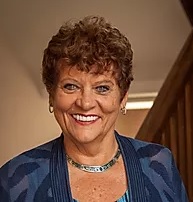The first task of grief is “to make the fact of the loss real.” Even when our loved one is sick and expected to die, it is still hard to believe. It is a shock to our bodies and minds. Our first response may be “NO!” even as our minds are processing , “Yes, it is so.” The first stage off shock or denial is often expressed as, “It doesn’t seem real.”
My son, Chuck, who died three months ago lived in Pittsburgh. Even as I look at his pictures and realize anew that he has died, another part of me “feels” he’s just in Pittsburgh. It is hard to wrap my mind and heart around the fact that I will not see him again this side of heaven.
When a death is fresh, there are many opportunities to tell people about the story of how the person died, and to share memories of your lives together. In fact, that relationship takes center stage in all your thinking and talking. After a few weeks, the friends who have listened with interest and compassion have dispersed to their own lives (isolated behind their own closed doors fighting the pandemic). In fact, many of these friends and family never even got to be there in the initial days to hear the stories.
Facing life without the person is always lonely. With COVID it is even lonelier. Chuck’s wife, Sharon, is working from home, has three teenagers with her, and has a lot of paperwork to keep her busy. Yet she is lonely. She is lonely because Chuck is not there to share the parenting, the bread-winning and the bread baking. She is lonely for her fun friend. And because of COVID she is lonely because the friends with whom she could exercise and talk with can’t get together. The healing that comes from distractions, physical outlets and emotional support are missing, too. Who wouldn’t feel alone?
Know that no matter how busy you are, or how many people surround you, you can still feel lonely and alone. That is part of grieving, and it serves to show us that life without that person is missing a great deal. It’s OK to cry. It is even more helpful to talk with others, even by phone, who can understand and listen.

Priscilla Leavitt, PhD, LPC
Psychologist
Dr. Leavitt is certified in marriage & family therapy, grief & bereavement, hypnosis, stress & Christian counseling. A popular speaker & Executive Coach, she uses her expertise for healing clients & teaching professionals.


 FIND US ON FACEBOOK
FIND US ON FACEBOOK
Leave a Reply 0 comments